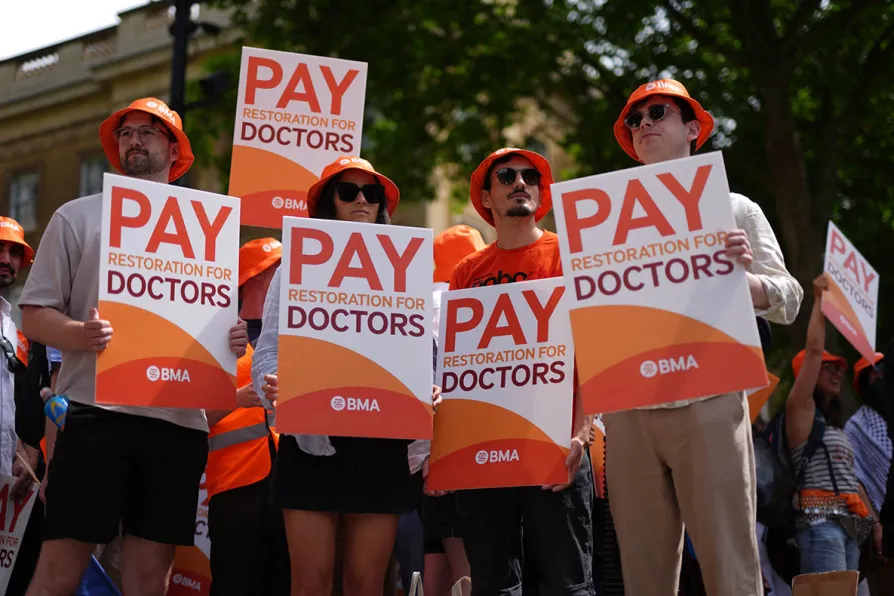
 Junior doctors protesting outside Downing Street, London, June 27, 2024
Junior doctors protesting outside Downing Street, London, June 27, 2024
FIRST-YEAR doctors in England have voted to walk out amid a critical unemployment crisis.
A survey by their union, the British Medical Association (BMA), reported that 34 per cent of resident doctors had no substantive employment or regular work from August 2025.
Among doctors in their second foundation year, this rose to 52 per cent.
The BMA said no strikes are currently planned, but talks with the government must now address job security, as well as the 21 per cent pay erosion resident doctors have endured since 2008 to avoid future action.
Dr Jack Fletcher, chairman of the BMA’s resident doctors committee, said: “Doctors have spoken clearly: they won’t accept that they face a career of insecurity at a time when the demand for doctors is huge.
“Yet successive governments have been unable to embrace the changes both doctors and patients are crying out for.
“The numbers are absurd: more than 10,000 doctors applied this year to become psychiatrists with less than 500 able to get a place, yet patients are still experiencing significant waits at a detriment to their health.
“GP unemployment is getting worse, with five doctors applying for every GP training post, yet patient demand for appointments continues to increase.
“The NHS 10 Year Plan currently offers a paltry 1,000 extra training places when there are already 20,000 more applicants than places.
“By putting these two disputes — pay and jobs — together, we are now giving government a chance to create a plan that supports and develops the workforce of the next generation.”
Health minister Stephen Kinnock said: “Training bottlenecks are a very real issue for resident doctors, which is why the government is already working on a range of measures to tackle them.
“We are creating 1,000 additional training places, taking steps to prioritise UK medical graduates and conducting a review of postgraduate training to make sure the system works for doctors.
“Striking over something the government is engaging with the BMA on would be both needless and counterproductive.”










